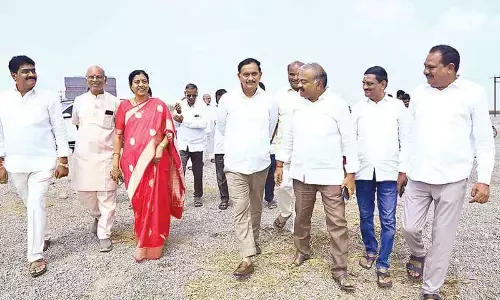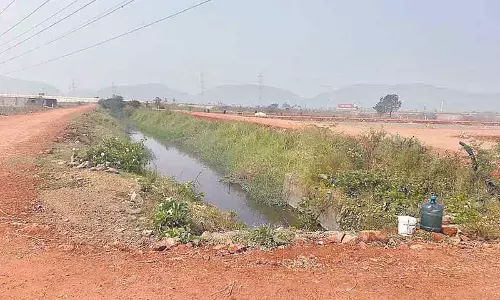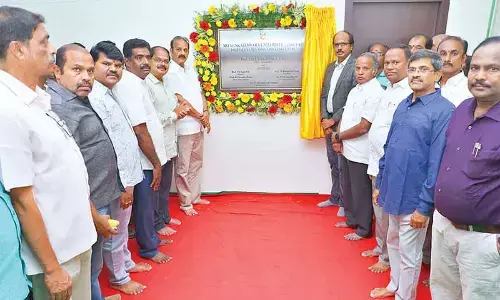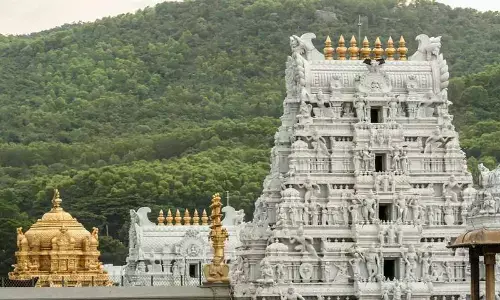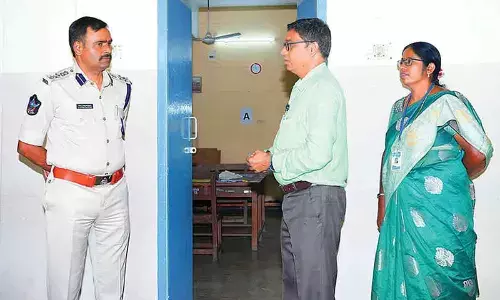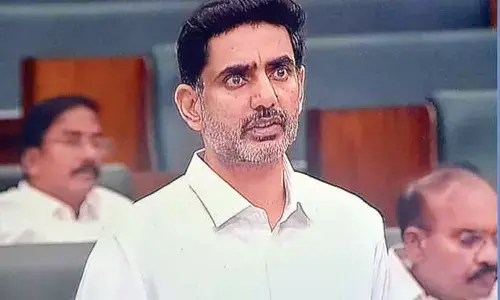Brahma Naidu, a great statesman
Brahma Naidu, A Great Statesman,Palanati Brahma Naidu was the best statesman Andhra Pradesh has ever produced in medieval times. He belonged to 12th century AD and he was the royal minister of the kings who ruled then Palnadu area.
Palanati Brahma Naidu was the best statesman Andhra Pradesh has ever produced in medieval times. He belonged to 12th century AD and he was the royal minister of the kings who ruled then Palnadu area. Born as Recherla Brahma Naidu in Velama caste, he was a vassal of the Velanati Chodas (Vassals of the Chola-Chalukyas are responsible for the administration of their Andhra territories). He ruled over the area of Palanadu while the sons of Alugu Bhupathi Raju were minors. Brahma Naidu tried to create a new era of peace and an egalitarian society where there would be no caste distinctions. He strived hard to promote and propagate progressive ideals in medieval times. It was the ideological differences that led Brahma Naidu and his supporters to leave the court of Nalagam Vira Raju (son of Alugu Bhupathi Raju of Palnati Kalachuris) and set up an independent kingdom in Macherla with Nalagama’s half brother Malideva as King.
Brahmanna, as he is popularly called, is a staunch Vaishnavite and a devotee of Lord Chennakesava. He constructed Chennakeshava Swami Temple in Macherla town which is popular even today among the people there. Brahmanna is also said to have adopted a son, a brave warrior called Kannamma, a Mala by caste.
History of Palnadu
Velanati Gonkaraja of Candavolu who belonged to Chalukya-Chola ancestry installed Anuguraja as thr king in Palnadu after giving his daughter Mailama Devi’s hand in marriage. Anuguraja had two more wives Viravidya Devi and Bhurama Devi. Being childless for few years, Anuguraja adopted Pedanayudu the eldest son of his minister Doddanayudu who belonged to fourth varna (yadav). After Mailama gave birth to Nalagamaraja, disillusioned with the turn of the events, Doddanayudu stepped down and made his son Brahmanayudu the minister. It is said that Brahmanayudu killed both the king and his father and made Nalagamaraja the king (1170 AD).
Battle of Palnadu
The battle of Palnadu (Palnati Yudham) was immortalised in Telugu literature by the poet Srinatha in his 'Palnati Vira Charita'. The only other scholarly book on the subject was written by Gene Roghair titled "Epic of Palnadu: Study and Translation of Palnati Virula Katha, a Telugu Oral Tradition from Andhra Pradesh". This war was very important in the social history of Andhra Pradesh. It was a battle between two factions of the Kalachuris.
Nalagama Vira Raju was the son of Alugu Bhupathi Raju of the Palanati Kalachuris. His step brother was Malideva Raju, who was married to a princess of the Kalyani branch of Kalachuris. Recherla Dodda Naidu and Recherla Brahma Naidu were vassals of the Velanti Chodas (Vassals of the Chola-Chalukyas and responsible for the administration of their Andhra territories) and tried to usher in a new era in which caste distinctions would be abolished. Nalagama being a conservative, was against this and tried to check their progress. He was supported by Nagamma, a Reddy female statesperson who became his chief adviser.
Mutual suspicion and rivalry reached a high pitch between the two courts and Nagamma, under the pretext of Malideva's defeat in a cock-fight, exiled them for seven years from Palnadu. After the exile, Brahma Naidu sent Alaraja, the son of Kalachuri Kommaraja of Kalyani, and the brother-in-law of Malideva to claim Malideva's share. The demand was turned down and Alaraja was poisoned to death under the orders of Nagamma in Cherlagudipadu. The enraged Kalyani Kalachuris and Brahma Naidu declared war on Gurajala capoital of Nalagama. The battle was fought in Karempudi on the banks of the River Naguleru. The Kakatiya dynasty Kota Vamsa, Paricchedis and Hoysalas supported Nalagama and the Vengi Kalachuris. The Velanati Chodas and Malideva were supported by the Kalyani Kalachuris.
The faction led by Brahma Naidu and Malideva were victorious. But Malideva died in the battle, so Brahma Naidu reinstated Nalagama. It is believed that Brahmanna then led his life as an ascetic. The civil war shook the Velanadu Kingdom to its foundation. A whole generation of the warriors of Andhra perished in the war. The tragedy hastened the end of the Chalukyan rule in Vengi. It exposed their weaknesses and allowed the Hoysalas, Kalachuris, Eastern Gangas and the Kakatiyas to eventually overrun them. The Battle of Palnadu is remembered and propagated through 'Burra Katha' even today by the people of Palnadu region, and through an annual gathering at the battlefield in Karempudi village to pay respect to warriors.
Next Story




